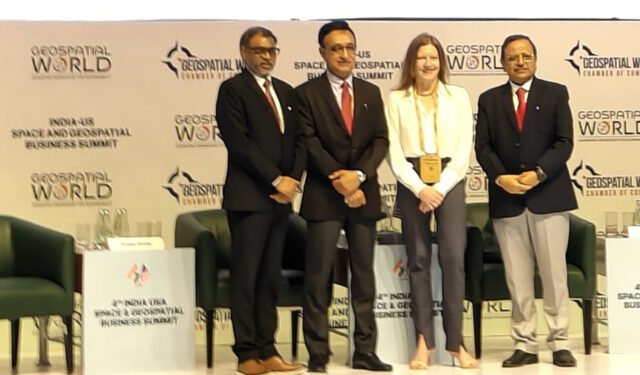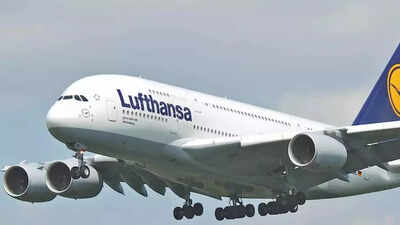Sanjay Kumar, CEO of Geospatial World, highlights India’s thriving geospatial sector, valued at $1.92 billion, as a global hub for cost-effective geospatial services
Published Date – 2 December 2024, 12:27 PM

The 4th India-USA Space and Geospatial Business Summit was convened at HICC Madhapur on Monday.
Hyderabad: In a landmark moment reflecting the deepening strategic partnership between India and the United States, the 4th India-USA Space and Geospatial Business Summit was convened at HICC Madhapur on Monday.
Organised by the Geospatial World Chamber of Commerce in collaboration with Geospatial World, the high-profile summit brought together key stakeholders from government, industry, academia, and research to explore and amplify the geospatial and space sectors’ potential for innovation, economic growth, and sustainability.
With bilateral trade in geospatial and space technologies projected to grow from $2.5 billion in 2024 to $10 billion by 2030, the summit underscored how shared investments in technology, policy alignment, and manufacturing can accelerate global progress, a press release said.
Sanjay Kumar, CEO of Geospatial World, highlighted India’s thriving geospatial sector, valued at $1.92 billion, as a global hub for cost-effective geospatial services. “The partnership between India and the US spans multiple sectors, including trade, defense, education, and healthcare, cementing a robust framework for innovation,” he said.
Jennifer Larson, US Consulate General in Hyderabad, emphasised the city’s role as a leader in geospatial data processing. “Hyderabad processes more geospatial data than anywhere else in the world. Our joint initiatives in space exploration and geospatial technologies are taking us closer to the cosmos while addressing critical global challenges like climate change, disaster management, and food security,” Jennifer Larson said.
Larson underscored the integration of artificial intelligence (AI) and machine learning (ML) with geospatial data, enabling sophisticated analyses to tackle global issues. “By the next summit, I hope we will witness bold advancements in areas like visa facilitation and expanded space cooperation, contributing to our $10 billion trade goal,” she said in conclusion.
Discussions at the summit focused on actionable strategies to deepen collaboration, including technology transfer, advanced manufacturing for geospatial equipment, and bolstering India’s role as a solution provider. Dr. Rajeev Jyoti, Director (Technical), IN-SPACe, Pawan Goenka, Chairman, IN-SPACe. Srikant Sastri, Chairman of the Geospatial Data Promotion & Development Committee (GDPDC) and other sector specialists spoke on the occasion.








